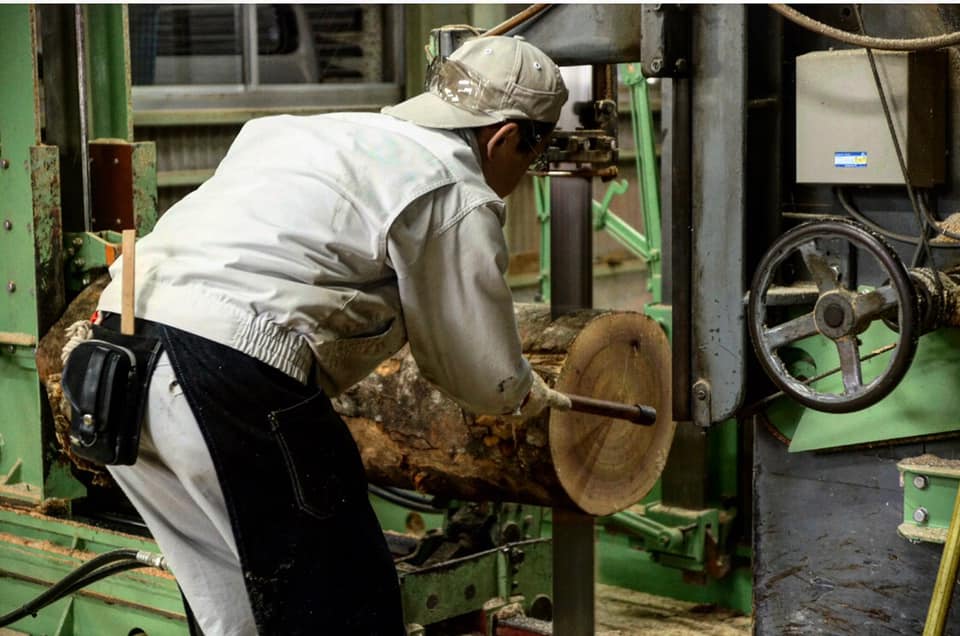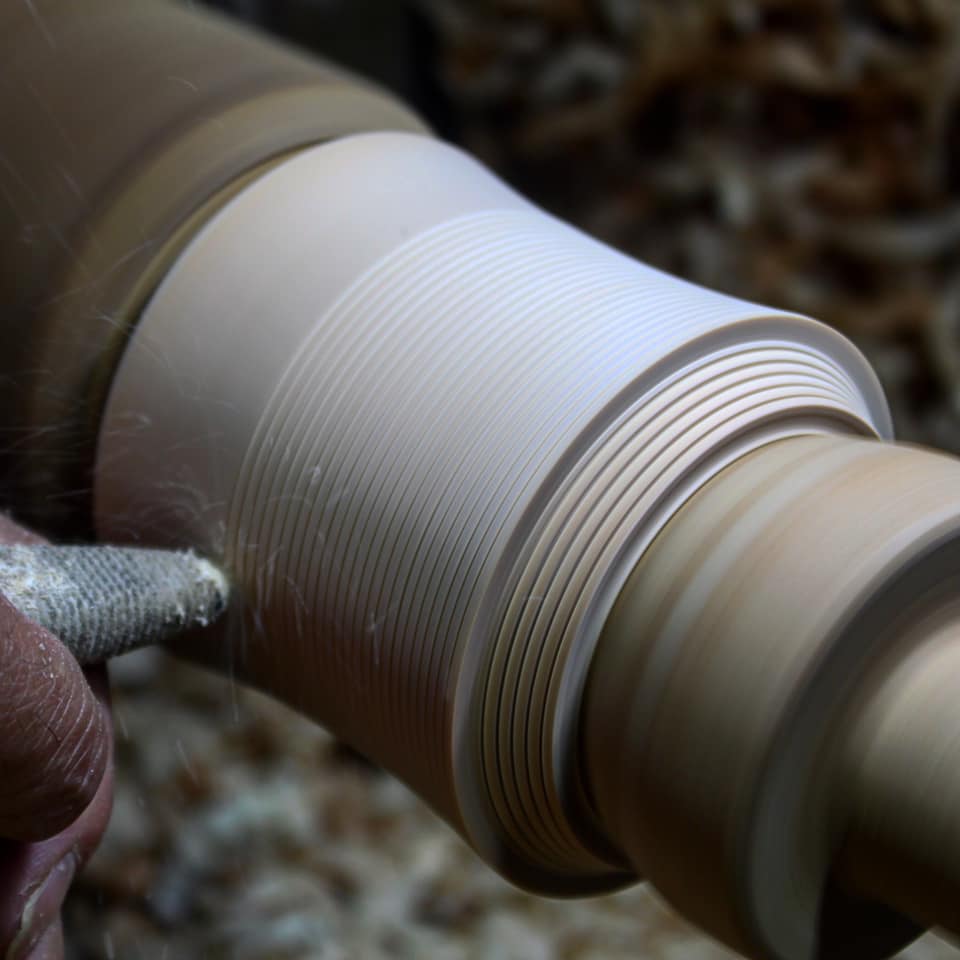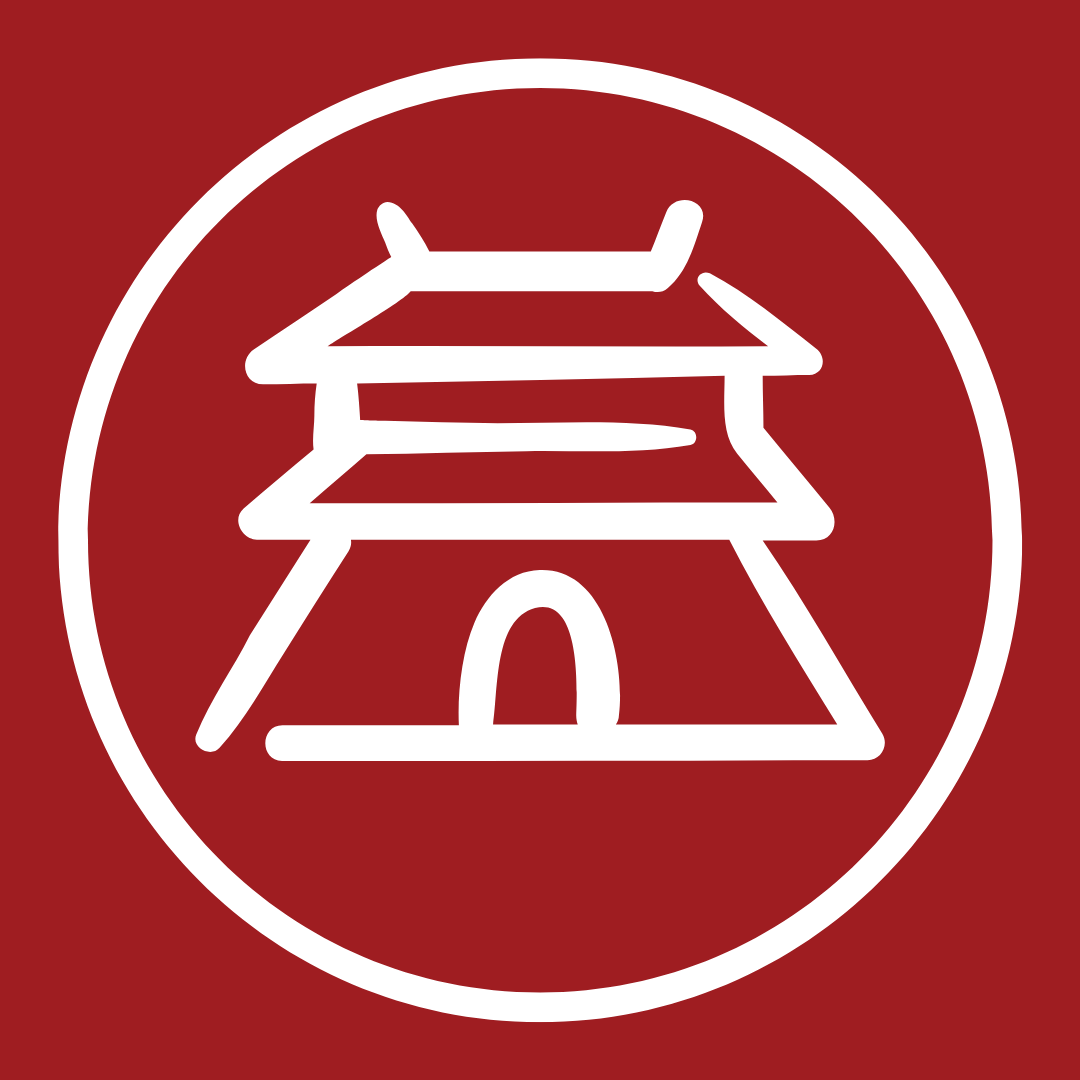
GATO MIKIO is currently run by Masayuki Gato and has a small team of highly skilled workers.
As a student, Gato realized the influence of Yamanaka Lacquerware on the daily lives of the people in his city and wanted to contribute to this local culture.
Now-a-days a lot of wood and lacquer crafts are mass-produced. Therefore Gato Makio choses to continue crafting according to the traditional ways in order to preserve the artwork, craftsmanship and Japanese local culture. They ensure that their crafts are not only authentic, but also suitable for contemporary use, either in Japanese or Western households; with items for tea and coffee, herbs, spices and other delicate food items.
The lacquer is beautifully applied in a way that is not too thick, so you still fully enjoy the finely carved designs that characterize the Yamanaka lacquer style. All steps, from the wood chosen to the techniques used to processed and the lacquer finish, are carefully thought through and done by the small team of craftsmen in order to make smooth, practical boxes that are not just a pleasure for the eye, but equally important, protect your precious tea and foods.
Due to the nature of the materials, the box itself is resistant against influences from temperatures, humidity
and air, making it a long-lasting item.

They use a unique lacquer technique that follows a pattern of painting a layer of lacquer, wiping it off, drying it, and then applying another layer. This process is repeated until the lacquer coating is satisfactory.
Working according to traditional techniques, Gato Mikio has a unique advantage of authenticity, craftmanship and the combination of traditional methods and modern designs. Especially with their tea container designs, they have gained much praise and awards, not just in, but especially outside of Japan.
Combining modern designs with Yamanaka traditional skills that only a handful of craftsmen in the area still process, Gato Makio is able to deliver truly amazing artworks.

The crafting techniques involving the use of a potter’s wheel, allow for extremely fine and detailed patterns in the surface of the wood. This does not only make these crafts extremely delicate, as a simple mistake would ruin the entire design, but also elegant and one of a kind. This pattern, aligning very precise lines on the outside of the container, is called ‘Sensuji’, and is the original style of Yanmanaka Lacquerware. The craftsmen make these rills on the outside of the container by hand, based on their experience and creativity, resulting in unique, dynamic pieces with a very soft texture. As the company was originally a woodworking plant, they use the best quality wood for the basis of their lacquerware. The finest timer, including Cherry Birch and Japanese Zolkova Elm are used, and many items skillfully handcrafted out of just one single piece of wood.
They have an impeccable reputation in the area and their products are only sold in high quality shops.
Gato Mikio received the 2010 Good Design Awards of Small and Medium Enterprises, sponsored by the Japan Institute of Design Promotion, celebrating their excellent design.
In 2011, they were awarded the German Design Plus Award, for their combination of beautiful design and high practicability and eco concern.
The year after, they furthermore received the “award of awards”, awarded by the German Design Council – The German Federal Design Award Silver- for the most authoritative design.






